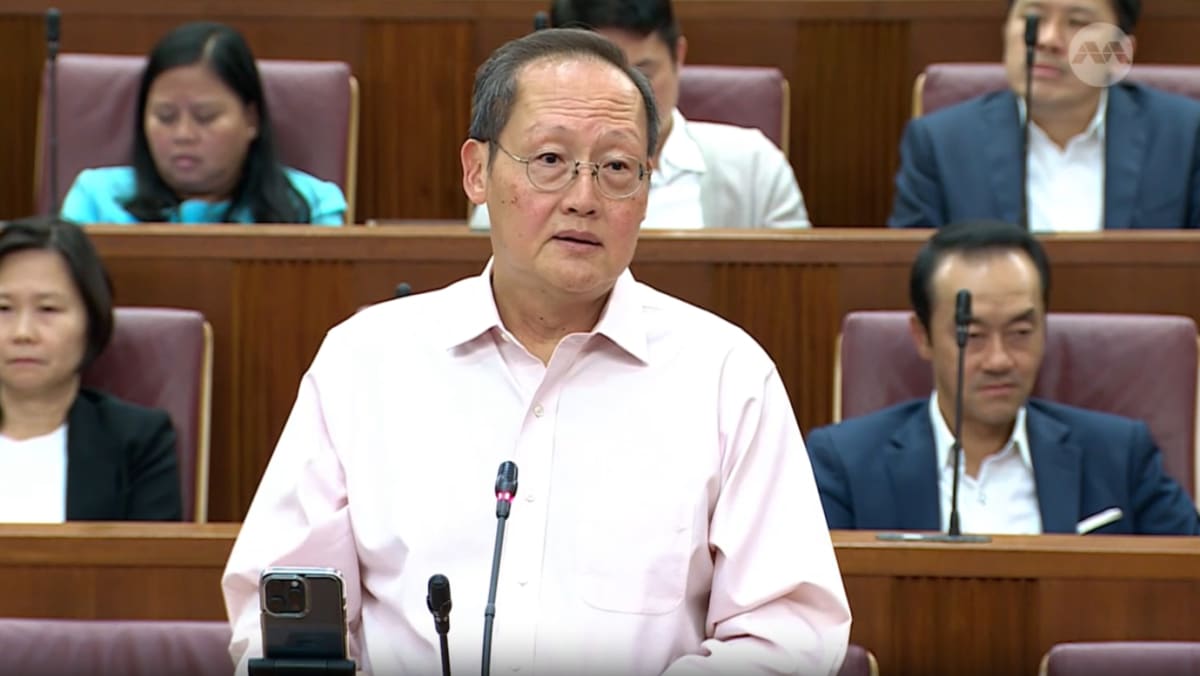In response, Mr Giam contended that it was “ridiculous” for any ruling party not to seek good relations with unions.
He said what the WP wanted was to “untether the NTUC from the PAP and free up unionists to be independent advocates for workers in Singapore”.
At this point, NTUC deputy secretary-general Desmond Tan (PAP-Pasir Ris-Punggol) asked Mr Giam for data points or personal experience showing that union leaders face restrictions speaking up.
The senior minister of state in the Prime Minister’s Office also shared feedback that he received from union leaders after Monday’s debate, where they disagreed with Mr Giam’s characterisation of their experiences.
Mr Giam in turn asked for “any instance where the NTUC has taken a public position that’s contrary to government policy in recent times”.
Mr Tan pointed to the new SkillsFuture Jobseeker Support scheme, saying that the government did not agree at the start but came round after NTUC had raised the issue for 14 years.
Leader of the Opposition Pritam Singh (WP-Aljunied) then joined the debate to reject Dr Koh’s comments on the WP, including the claim that the party was against harmonious tripartite relations.
On what Dr Koh said about the WP’s founding, Mr Singh also said that it “disregards an important fact that more than 60 years have elapsed and the political situation has changed dramatically and significantly”.
He referred to a 1966 NTUC publication in which then NTUC secretary-general Ho See Beng “took issue with government leaders, particularly the prime minister, for speaking unendingly of labour’s obligations while hardly touching on labour’s rights and major grievances”.
Mr Singh asked Dr Koh if he could raise “a single example of where an NTUC secretary-general or a deputy secretary-general has spoken out against a 3G or 4G leader to defend the rights of workers”.
“Now, I am not suggesting that this is the gold standard or the test … But this comes to the heart of what people see and believe to be a conflict of interest,” said the WP secretary-general.
“And when NTUC delegates are saying ‘majulah PAP’, I think people are entitled to question, do you speak for the party first? Or do you speak for workers first?
“The point is not about moving Singapore in a direction where employers, employees, workers, government, fight each other to the detriment of our society and our economic growth,” he said.
“Party interests cannot be more important than the interests of our workers.
“And a symbiotic relationship does not mean that the NTUC is neutered or cannot openly speak out in the interests of workers,” said Mr Singh, adding that he had no reason to believe rank-and-file members of NTUC do not speak out for workers.
Dr Koh replied: “Just because the Workers’ Party lost the relationship with worker unions long ago, doesn’t mean that because we can preserve the relationship for 60 years, there’s something wrong with a symbiotic relationship.”
Mr Singh rose to say that “there’s no question of losing a relationship in any way”.
In closing the exchange, Dr Tan shared an anecdote by the immediate former president of the Singapore National Employers Federation (SNEF).
Dr Robert Yap had told a foreign counterpart that contrary to the view that unions in Singapore are weak, “the unions here are strong because they get what they want without striking”.
Dr Tan said that the strength of the tripartite system was that it delivered positive outcomes through negotiation rather than open confrontation, and without disruption.
The manpower minister also urged the House to “look at the record” of what tripartism has achieved for Singapore.
“Together, we’ve protected jobs, we have created stability, we have ensured prosperity for our workers, our businesses. I hope we can continue.”







